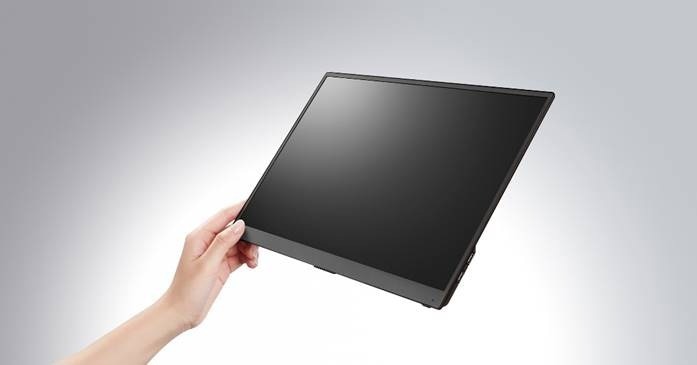Teijin Limited announced today that Teijin’s Tenax™ TPCL, a carbon fiber intermediate material, and its Panlite® Sheet, a polycarbonate (PC) product, the housing of the world's lightest (*) portable displays developed by VAIO Corporation (hereinafter VAIO). The VAIO Vision+™ 14 and the VAIO Vision+™ 14P, subsequently referred to collectively as VAIO Vision+™, were launched by the VAIO in Japan in early July.
 VAIO Vision+™ portable display that uses a carbon fiber reinforced thermoplastic resin housing. Image Credit: Teijin Limited
VAIO Vision+™ portable display that uses a carbon fiber reinforced thermoplastic resin housing. Image Credit: Teijin Limited
The characteristics of the Teijin materials have made it possible to achieve the world's lightest portable display, which weighs approximately 325 g and is approximately 3.9 mm thin at its thinnest point.
Tenax™ TPCL intermediate, used for the VAIO Vision+™ housing’s top and bottom layers of the sandwich construction, is a sheet-like material made of woven carbon fiber impregnated with thermoplastic resin. It is lightweight, resistant to heat and impact, strong and rigid, and also meets flame retardancy requirements for electrical products. In addition, Panlite® Sheet, made from PC resin and used for the middle layer, has excellent dimensional stability, is lightweight, and has impact resistance.
Reduced CO2 and Easier Manufacturing
Conventional housings use metal parts for assembly, which need to be installed during the manufacturing process. However, the housing of the new displays, which has a structure that sandwiches Panlite® Sheet between Tenax™ TPCL layers, achieves the shape and strength of the connections necessary for assembly without the need for metal parts. This material solution makes it possible to manufacture complex, three-dimensional shapes in a single molding step, which helps reduce the number of steps required to manufacture the housing and also cuts CO2 emissions.
The Teijin Group aims to become "a company that protects the global environment," embodying its long-term vision of becoming "a company that supports the society of the future," and will continue to utilize a wide range of highly functional materials to provide solutions in a variety of fields.